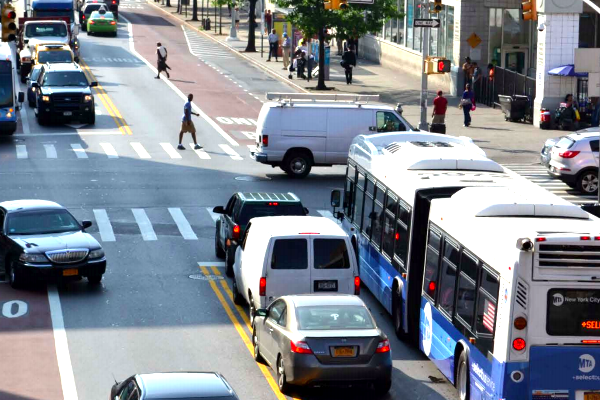 To understand the frustration of people of color and women from Harlem to Hollis, consider the $3.4 billion in contracts the city recently awarded businesses in its fight against the COVID-19 pandemic.
To understand the frustration of people of color and women from Harlem to Hollis, consider the $3.4 billion in contracts the city recently awarded businesses in its fight against the COVID-19 pandemic.
Despite minorities owning a substantial number of businesses in the city, only 5% of the $3.4 billion went to minority-owned firms, a Crain’s analysis found. Blacks fared the worst, with 1%; Latino-owned firms received 1.3%; and Asian firms got 2.5%. The Harlem Business Alliance wrote “…White firms (Men & Women firms combined) received over 95% of $3.4B in Covid-19 contracts.”
Despite minorities owning a substantial number of businesses in the city, only 5% of the $3.4 billion went to minority-owned firms, a Crain’s analysis found. Blacks fared the worst, with 1%; Latino-owned firms received 1.3%; and Asian firms got 2.5%. The Harlem Business Alliance wrote “…White firms (Men & Women firms combined) received over 95% of $3.4B in Covid-19 contracts.”
Nearly 10,000 minority-owned firms are registered with the city’s Office of Minority and Women-Owned Business Enterprises, but only 87 of them received one of the 622 Covid-19 contracts issued by the city.
Nearly 10,000 minority-owned firms are registered with the city’s Office of Minority and Women-Owned Business Enterprises, but only 87 of them received one of the 622 Covid-19 contracts issued by the city.
The numbers in themselves would have been alarming, but given that the city already has a program in place to give minorities their fair share of contracts, these figures are disgraceful and, quite frankly, indefensible.
Unfortunately, it’s the same old story.
Promises are made to take corrective action to ensure that people of color get a fair shake, and programs are created to facilitate such action. But when it’s time to step up and do the right thing, other priorities always seem to take precedence. In this case, the mayor’s office said the city’s first priority was to get hospitals what they needed in a hurry.
We agree, but why does that preclude officials from working with minority firms?
The city issued contracts for a wide range of products, including masks, gowns, medical devices, food and meal programs, transportation and cleaning services. It’s hard to believe that more minority businesses were not awarded COVID-19 contracts.
For many minority vendors, the city’s help was desperately needed at a critical time for their business.
Fenix Reyno, the president of a Bronx-based livery business, said she really could have used a contract from the city during the pandemic. Half the people in her fleet have stopped working and are collecting unemployment benefits. Although her company has been certified as a minority-owned business since 2016 and has won contracts from the state in the past worth $10.8 million, she has never received a contract from the city.
“I’ve applied for everything,” she told Crain’s reporter Gwen Everett. “I’ve tried to do different things, like different sorts of transportation. There has to be some contract out there, even if it’s delivering test samples.”
The city’s failure in this case is only one example of the kinds of problems minority-owned firms often face when trying to win contracts. Because payment is often made only after a product is delivered, firms often need financing upfront to fulfill a contract—and that can be difficult, even for those that have established relationships with banks.
If the city is serious about helping minority-owned firms, it needs to complete a top-to-bottom review of why more of them did not get Covid-19 contracts, and then take appropriate action to correct its shortcomings. That might mean expanding its program to help firms find the financing they need to compete on equal footing with better-financed companies.
Mayor Bill de Blasio is fond of telling New Yorkers how much he cares about racial justice. Here’s a chance for him to do something about it.
Via Harlem Business Alliance (HBA)
Become a Harlem Insider!
By submitting this form, you are consenting to receive marketing emails from: . You can revoke your consent to receive emails at any time by using the SafeUnsubscribe® link, found at the bottom of every email. Emails are serviced by Constant Contact








